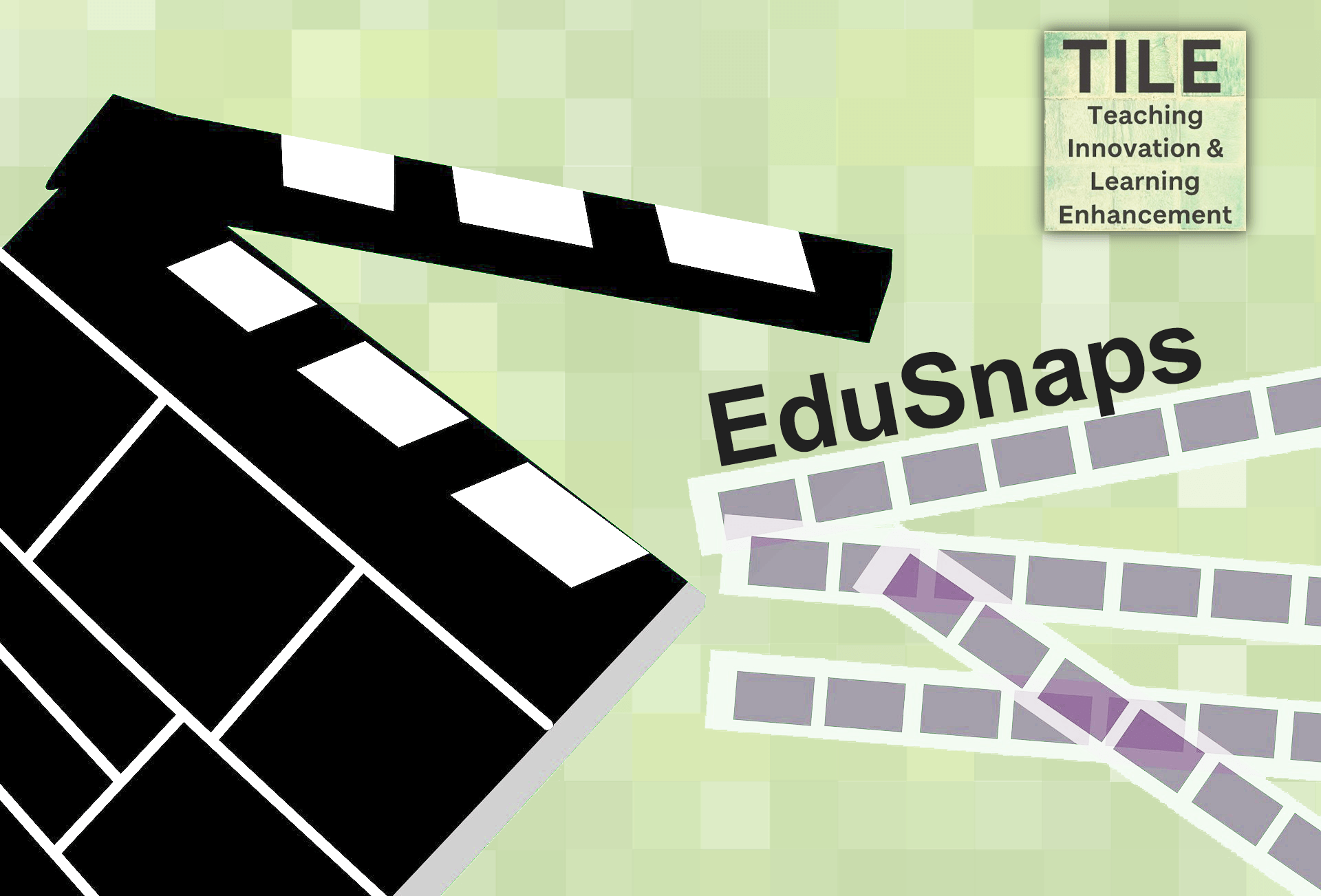Teaching Innovation & Learning Enhancement
Bringing people from different disciplines and sectors together to discuss ways to overcome issues in education using evidence-based findings
TILE EduSnaps
Experts in psychological science, education, and learning & teaching answer questions!
EduSnaps will be uploaded on a rolling basis throughout the year, extending the successful EduSnaps Summer Series 2018. We hope you enjoy these brief videos of our experts.
If you want to contribute an Edusnap yourself or have a burning question that would fit in here, don’t hestitate to get in touch.
Enjoy!
When should previouly-taught material be reviewed to decrease forgetting of it?
What are the benefits of sleep for learning?
Does our memory generally decline with old age?
Can thinking about themselves ('self-referencing') help children learn?
Does retrieval practice work as a learning strategy for all learners independent of age and abilities? Why does taking practice tests work better than rereading the material?
What considerations do you make when deciding whether or not to use a new strategy or gadget in your classroom?
Blake Harvard is an AP Psychology teacher at James Clemens High School in Alabama. He uses evidence from cognitive psychology to improve his student’s study skills and learning habits in and out of the classroom. He has led presentations on the application of cognitive psychology in the classroom across the United States and worked with the Institute of Education Sciences to improve the connection between research and the classroom. You can follow him on twitter at @effortfuleduktr and visit his blog at www.effortfuleducator.com.
Retrieval practice is a good learning strategy. Are there specific test formats that are more beneficial than others and that you would suggest learners to use during studying?
What are the pros and cons of lecture capture in Higher Education?
Is student personality associated with academic achievement?
Does parenting cause children’s ‘bad' — or good — behaviour?
How do you use LEGO to support learning in the classroom?
Shafina Vohra is a teacher of A Level Psychology at the London Design & Engineering UTC, as well as a PhD candidate at UCL, researching creativity and motivation within STEM subjects by using a hands-on approach. As a certified Lego Education Academy Trainer, Shafina has adapted the LEGO Foundation 6-brick method for her lessons and engages with learners, teachers and other educators to try their own hands at ‘teaching and learning with hands’. You can follow her on Twitter @ShafinaVohra.
More EduSnaps coming soon!
Stay tuned!

Recent Comments